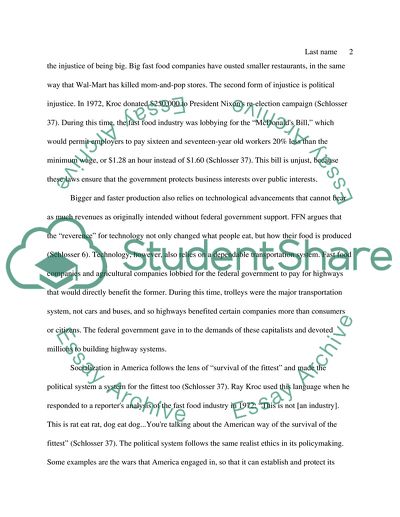Cite this document
(Fast Food Nation - When Bigger, Faster, and Cheaper is Not Right Assignment, n.d.)
Fast Food Nation - When Bigger, Faster, and Cheaper is Not Right Assignment. Retrieved from https://studentshare.org/social-science/1761842-fast-food-nation-assignment
Fast Food Nation - When Bigger, Faster, and Cheaper is Not Right Assignment. Retrieved from https://studentshare.org/social-science/1761842-fast-food-nation-assignment
(Fast Food Nation - When Bigger, Faster, and Cheaper Is Not Right Assignment)
Fast Food Nation - When Bigger, Faster, and Cheaper Is Not Right Assignment. https://studentshare.org/social-science/1761842-fast-food-nation-assignment.
Fast Food Nation - When Bigger, Faster, and Cheaper Is Not Right Assignment. https://studentshare.org/social-science/1761842-fast-food-nation-assignment.
“Fast Food Nation - When Bigger, Faster, and Cheaper Is Not Right Assignment”, n.d. https://studentshare.org/social-science/1761842-fast-food-nation-assignment.


